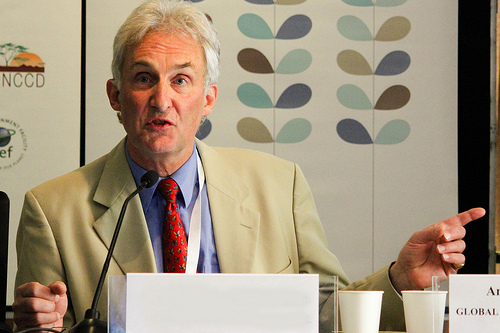The Global Canopy Programme’s ‘Forest 500’, the world’s first rainforest ratings agency that analyses the most influential companies, investors and governments in the race towards a deforestation-free global economy, on Wednesday launched its annual results. It revealed that while the corporate sector improved marginally overall, many laggards are yet to make public sustainability commitments. Commercial agriculture drives at least two thirds of tropical deforestation yet only 8% of all the 250 powerbroker companies assessed have zero or zero net commitments in place that apply across forest risk commodities (palm oil, soya, beef, leather, paper, and timber). The investment community has made even more limited progress, with the exception of BNP Paribas (France) who has become the first Forest 500 investor to make a commitment to zero net deforestation in their agricultural lendings.

The 2015 Forest 500, assessed and ranked 250 companies, with total annual revenues in excess of $4.5 trillion; 150 investors and lenders; 50 countries and regions; and 50 other influential actors in this space. These 500 powerbrokers play a major role in supply chains for commodities fuelling deforestation, which accounts for 10% of global carbon emissions, a key contributor to climate change.
Andrew Mitchell, Founder and Executive Director of the Global Canopy Programme, said, “GCP’s Forest 500 holds the most influential global players to account for their role in the deforestation economy. Together, these 500 powerbrokers control the complex supply chains of key ‘forest risk commodities’ that are found in over 50% of packaged products in supermarkets. Through these commodities, we are all part of a hidden deforestation economy – from our toothpaste, to our pensions. At this crucial time leading up to the international climate change negotiations, GCP is calling on these companies and investors to take the first critical step in addressing tropical deforestation by adopting, strengthening and implementing deforestation policies in their value chains.”
The 2015 Forest 500 found:
- Despite 2020 being a key deadline set by the New York Declaration on Forests, one year on since its publication, few powerbrokers have made new or strengthened procurement and production commitments.
- Whilst the corporate sector has improved marginally overall, many laggards are yet to make public sustainability commitments. Only 8% of all the 250 powerbroker companies now have zero or zero net commitments in place that apply across all forest risk commodities.
- The corporate leader board remains unchanged, with Groupe Danone (France),Kao Corp. (Japan), Nestlé S.A. (Switzerland), Procter & Gamble (US), Reckitt Benckiser Group (UK), and Unilever (UK) the only companies to score 5 points.
New York Declaration signatories lead the way towards achieving zero deforestation in agricultural supply chains scoring on average three times higher than non-signatories.
The investment community has made even more limited progress with less than 1% of investors adopting zero or zero net commitments that apply to all of their investments or lendings in agricultural supply chains.
BNP Paribas (France) has become the first Forest 500 investor to make a commitment to zero net deforestation in their agricultural lendings and joins HSBC (UK) in the top score band. Of the jurisdictions assessed, none has significantly strengthened their national or state-level deforestation policies to improve their Forest 500 score.
Séverin Fischer, BNP Paribas, Head of Environment and Extra Financial Accountability, said, “BNP Paribas has taken the strategic decision to make a zero net deforestation commitment that will be implemented by 2020. This applies to all our lendings in agricultural commodities as it makes both commercial and environmental sense, we are managing risk over the long term. The Forest 500 is an important benchmarking tool that helps us recognise risk in our portfolios and we are delighted that our leadership position has been recognised, we hope others will follow.”
Tom Bregman, Project Manager of the Forest 500, said, “The Forest 500 platform now includes significant enhancements which enable users to compare progress across sectors and target their engagement with powerbrokers to incentivise change. In the coming months, the Forest 500 is going to be working with others, together we hope to create a race to the top.”
